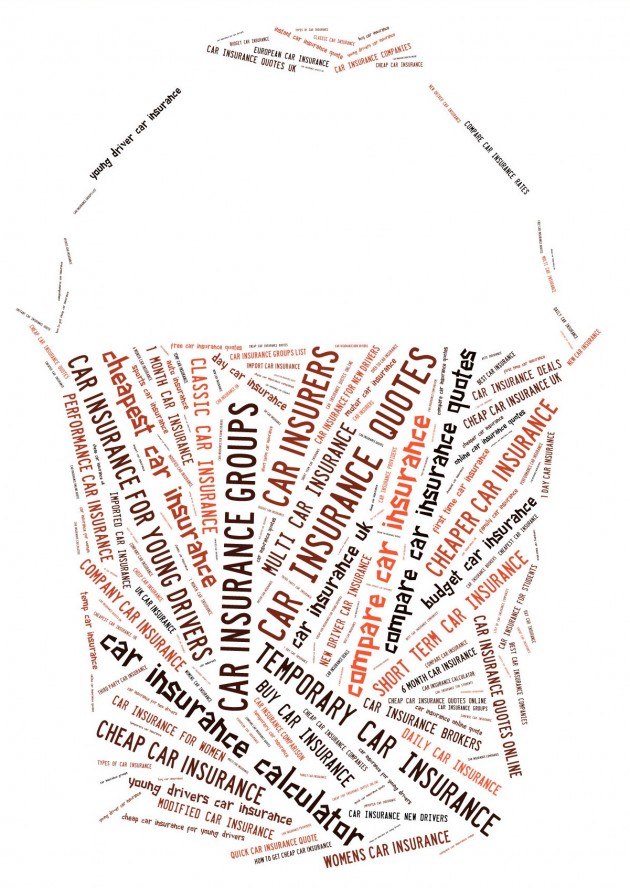Time to Retire Individual Keyword Rankings as a KPI
Once upon a time clients would come to us and would express an unwavering desire to rank their site in the top organic positions of Google SERPs for a narrow selection of keywords. Through a mix of onsite optimisation, content production and innovative link building, we could close-to-guarantee those rankings. We don’t make such guarantees anymore, nor would we want to, and this article discusses the main reasons why.
Why we don’t obsess over individual rankings
- Rankings now fluctuate more than ever - individual ranking data for many search terms is next to useless these days
- Google penalises narrow-focus keyword targeting - Panda and Penguin changed the game for good, but also helped show us the light
- You don’t see the bigger picture - We digital marketers were selling ourselves short for many years by being so obsessed with the tips of very large keyword icebergs
Google rankings like a good dance these days
It used to be the case that if you resided in the same country and you used the same version of Google, you’d see pretty much the same search results as the next person. This has been steadily changing for years as Google strived to increase the personalisation of search results, whether users were signed in or not. Search history, SERP engagement data, location, and many other signals were used to enhance Google results for individuals. We can now see from GA data that in some sectors around 50% of Google users visit via secure search (i.e. very high chance of being signed in to Google), and thus are likely to be seeing some form of personalisation in their search results. This figure is set to increase, and personalisation will become more significant, especially as Google gathers more insight via G+.
Geo-specific rankings have recently become far more prevalent than they have in years gone by. As Google continues its march towards serving the most relevant and targeted content to individuals, the rankings seen by someone in Manchester for example, can be (and often are) very different to those seen by a London-based searcher. Some industries are affected more than others, but it increasingly undermines the validity of using individual rankings as a KPI.
Furthermore, Google runs live tests in its SERPs all the time now to constantly judge engagement metrics with different search results. This further adds to ranking instability.
Here is a neat little Chrome extension to show you how much rankings fluctuate based on search location.
Over-target specific keywords at your peril
Let’s not beat about the bush, Google used to reward (intentionally or otherwise) SEOs and webmasters that laser-focused their efforts on a selection of keywords that they deemed to be valuable. The process went something like this:
- Identify target keywords and select your target landing page
- Include target keywords in meta elements of target landing page, including page title, ideally somewhere close to the beginning
- Include target keywords in H1, H2, H3 and as many other Hs as you can get away with
- Include target keywords, and variations of, in the body of the page, with keyword density tweaked and use of bold and italics on keywords optional
- Change all internal links to page to include target keyword in anchor
- Embark on sustained link building campaign, using exact-match target keyword in as many anchors as possible
(Sound familiar?)
If this makes you cringe when reading, then good, it should. I found it hard enough to write to be honest. That said, it worked, and it worked for a long time, until...
Google decided it had had enough, and all that onsite (over)-optimisation stuff got scrutinised by the Panda algorithm, while Penguin (and some manual spam hunters) have been dealing with all that unnatural linking. The fact of the matter is, you cannot laser-target keywords these days without putting yourself in the firing line of a Google algorithm, and it’s only going to get more risky. You can still optimise for keywords, no one is saying you can’t, but you just need to be a whole lot smarter about it and think about users rather than search engines.
The value is in the longtail
When you focus only on specific keywords, you miss all of the great terms that make up the rest of the bucket, and which often display better conversion rates thanks to their more targeted nature.

If you spend just a minute looking at your website analytics package, and more specifically looking at the organic referring keywords to your site, you’ll more often than not see that the mid and longtail search terms drive more traffic than the head terms they’re associated with, even when that head term seems to be performing very well in the SERPs (which is not easy to judge, remember). For example, if you seem to have strong visibility in Google for the term ‘shoes’ and you check how much traffic that keyword is referring, you often find that the combined value of all the phrases that include the word ‘shoes’ (minus that specific term) account for far more traffic, and often more revenue, than the head term alone. This varies with industry (and is getting harder to prove thanks to ‘Not Provided’ data), but from our studies we have found that the mid and longtail terms often deliver between five andten times the traffic and revenue than that of the singular head term.
If you’re not seeing the above, then chances are you need a better longtail strategy, and you need to speak to us.
What KPIs should be used instead?
If we’re not looking at individual rankings any more, what are we looking at? Well, clearly the right KPIs are dependent on the campaign and its objectives, and the potential number of valuable metrics is so numerous that exploring all of them is beyond the scope of this post. However, here are some search/content-focused KPIs we find useful here at Fresh Egg:
- Organic traffic – Non-paid search traffic is naturally high on our list of KPIs, and we can now even break up the ‘Not Provided’ data using keyword behaviour modelling and computer learning. This allows us to get insight into previously hidden data and means we can report far more accurately on the brand/non-brand split
- Keyword group ‘share of traffic’ – We group large buckets of keywords together based on semantics and shared terms, then track the visibility of these buckets over time. Using ranking, search volume, and CTR data we can then report on the ‘share of traffic’ performance of the group against the total available search and against competitors. We are increasingly mapping geo-specific keyword group visibility also, and this allows us to get a much better picture of the search landscape than focusing on just a handful of terms
- Onsite content performance – Recording how much traffic (from multiple channels) is driven by onsite content, and how users engage with this content gives us a really good idea of quality and performance. We can help you create and manage great content that drives traffic to your site
- Offsite content performance – We’re increasingly being able to track the performance of offsite campaigns and coverage to report on social engagement, reach, and ultimately brand-awareness. Referrals from offsite promotions (and how those referrals behave on your site) are of course more very valuable KPIs
- Conversions – Ultimately, this is what everyone is interested in, and everything we do aims to eventually drive increased conversions via the websites we work with. This can be anything from newsletter signups to ecommerce transactions. With multi-discipline campaigns you have to get smart about attribution, and where possible we look to utilise multi-channel funnels to interpret where value is really being driven from, and how value is being shared between social, organic search, PPC, display etc.
So there you have it, hopefully a pretty compelling case for dropping individual keyword rankings from your core KPIs. To end on a cautionary message – if anyone in the industry tells you they can guarantee you top rankings, be very wary...then point them in the direction of this post.
